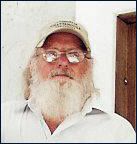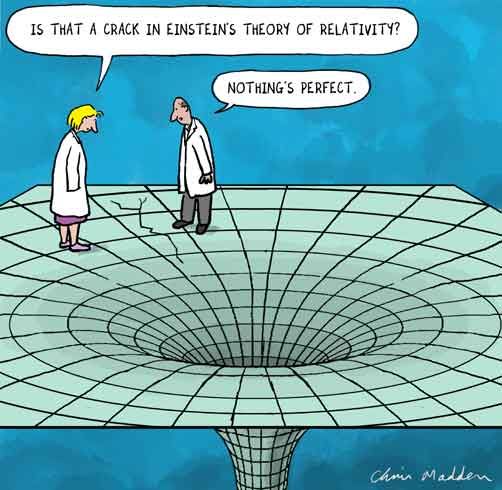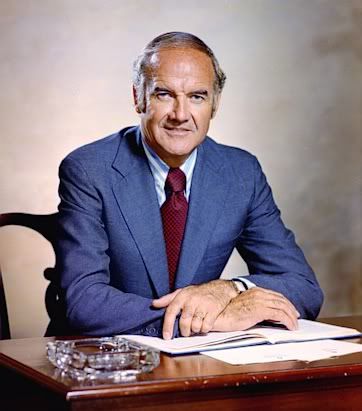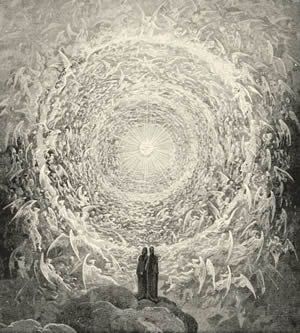 Ralph Hood Jr. The University
of Tennessee at Chattanooga
Ralph Hood Jr. The University
of Tennessee at Chattanooga
Empirical Supernature
Why should
we assume that such experiences are experiences of the divine? The first reason
is because the content of the experience is largely that of the divine. Even
when the experience is interpreted by the receiver not be about God the
receiver has been known to act in way consistently with belief in God, and the
experience described is the same experience as those described by those who say
‘this was God.’ Ergo it’s just a matter of interpretation. The vast majority of
those who have these experiences do believe they are about God.
[1]
Secondly, there is a voluminous and ancient tradition of writing about
experiences by people from all over the world, and the brunt of this tradition
is that it’s an experience of the divine. Literary and philosophical works such
as
Mysticism by Evelyn Underhill,
[2]
The works of W.T. Stace
[3]
and many other such writings which catalogue the writings of these experiences,
and many more works of the experiences of individual mystics by the mystics themselves.
Thirdly, grounded in empirical evidence, the universal nature of such
experiences implies the experience of a source external to the human mind
encountered by all who have such experiences. When I say “external” I mean it
originates externally but is experienced internally. This includes human brain
structure and brain chemistry as a conduit not that it circumvents natural
processes.
The works
of W.T. Stace are very influential. He shows that, as Ralph Hood Jr. put it,
“within and eventually outside of the great faith traditions mysticism has
flourished.”
[4] Stace offers five characteristics that
demonstrate the commonalities to mystical experience; these are characteristics
that are found universally in all cultures and in all forms of mystical experience:
The contemporary interest in the empirical research
of mysticism can be traced to Stace’s (Stace, 1960) demarcation of the
phenomenological characteristics of mystical experiences (Hood, 1975). In
Stace’s conceptualization, mystical experiences had five characteristics (Hood,
1985, p.176):
1.
The mystical experience is noetic. The person having
the experience perceives it as a valid source of knowledge and not just a
subjective experience.
2.
The mystical experience is ineffable, it cannot
simply be described in words.
3.
The mystical experience is holy. While this is the
religious aspect of the experience it is not necessarily expressed in any
particular theological terms.
4.
The mystical experience is profound yet enjoyable
and characterized by positive affect.
5.
The mystical experience is paradoxical. It defies
logic. Further analysis of reported mystical experiences suggests that the one
essential feature of mysticism is an experience of unity (Hood, 1985). The
experience of unity involves a process of ego loss and is generally expressed
in one of three ways (Hood, 1 976a). The ego is absorbed into that which
transcends it, or an inward process by which the ego gains pure awareness of
self, or a combination of the two.[5]
In speaking
of “mystical experience” we are not talking about visions or voices. We are not
talking about miracles or God speaking to people. We are talking about “the
sense of the numinous,” a sense of presence, a sense of undifferentiated unity
of all things. The claim is often made that this is an unmediated experience of
reality. The veil is taken back on the thing behind the façade and reality is
experienced directly. The notion of an unmediated experience is debatable and
not essential to an understanding of the experience. A couple of examples might
be helpful. It’s helpful to understand that mystical experiences come in two
forms, introvertive and extrovertive. Intorovertive experiences are without
time and space; they are not keyed to any external landmark or visual que. They
seem to be beyond word, thought, or image. Extrovertive experiences are often
keyed to a land mark and seem like projecting a sense onto the image of nature.
For example the sense that God is pervading the physical space in nature around
which one views a scene in nature. Or a sense that all the natural landscape
around forms some sort of whole that’s meaningful and indicative as an
understanding of all reality.
Common Core vs Perennial philosophy
Hood takes
these kinds of statements as phenomenological and descriptive of a personal
experience. The true nature of that experience as unmediated is not important.
The issue is that its universality, since it should be culturally constructed
is indicative of more than just a trick of brain chemistry or cultural
constructs. Ralph Hood Jr. argues for what is called “the common core
hypothesis.” This is not a perennial philosophy one often finds discussed as
part of mystical experience. The distinction is hat perennial almost construct
a separate religion out of mystical experience and puts it over against faith
traditions. The common core hypothesis merely recognizes that there is a common
core experience that is universal to mystical experience, and thus it can be
argued that it’s an experience of some reality external to just human brain structure.
Yet it doesn’t try to collapse faith traditions into a particular theological
formulation. Moreover, the common core hypothesis just takes the common core as
a phenomenological reality not a theological or ontological demand about
reality. Yet mystical experience “promotes a special type of human experience
that is at once unitive and nondiscursive, at once self fulfilling and
self-effacing.”
[6] Introvertive mystical has
been identified as “pure consciousness.” This kind of experience lacks content
and can’t be tied to a cultural construct or personal influence.
[7]
While it is the case that these kinds of experiences are interpreted in various
ways, and it is the case that various theological explanations tailored to a
given tradition are advanced for these, as many as there are mystics to have
the, the real diversity comes not from the experience but from the explanations
attached to the experiences.
[8]
Much of the discussion about common core is tied to the texts of a given
literature. There various bodies of mystical literature, the important once for
our purposes is the empirical. This is a measurement based empirical scientific
literature such as the work of Hood.
[9]
Many names
loom large in that body of literature; Greeley, Maslow, Wuthnow, Nobel, Lukoff
and Lu, none more prolific or significant than Hood. Hood entered the field in
the early 70s when he was a young man. Since that time he has done a huge a
mount of research and is best known for developing what is called ‘the
Mysticism scale,” or “M scale.” This is a 32 item questionnaire that is scored
in a particular way and is calculated to test the veracity of Stace’s theories.
In other words, if actual modern mystics around the world experience the things
Stace thought they do, in the way Stace thought they experienced them (see the
five point list above) they would answer certain questions in a certain way.
[10]
Hood’s work in the M scale is becoming the standard operating procedure for
study of mystical and religious experiences. It hasn’t yet been understood by
everyone so we find that people evoking religious experience by manipulating
stimulation of the brain don’t use the M scale for research and thus can’t
prove they are evoking real mystical experiences.
[11] Dale Caird said that “research into mystical
experience has been greatly facilitated”
[12]
by Hood’s M scale. Caird did one of the studies that validated the M scale. Burris
(1999) has shown that the M scale is the most commonly used measurement for the
study of mysticism.
[13]
The M scale
enables us to determine the validity of a mystical experience among
contemporary people. In other words, did someone have a “real mystical
experience” or are they just carried by the idea of having one?
[14]
There are two major versions of the M scale, what is called “two factor”
solution and a three factor solution. The two factors are items assessing an
experience of unity (questions such as “have you had an experience of unity?”)
and items refereeing to religious and knowledge claims. In other words
questions such as “did you experience God’s presence?” Or did you experience
God’s love?” In each section there are two positively worded and two negatively
worded items.
[15] The problem with the two
factor analysis is that it tried to be neutral with Langue, according to Hood himself.
It spoke of “experience of ultimate reality” but with no indication that
ultimate reality means reality of God. As Hood puts it, “no langue is neutral.”
[16]
One group might want ultimate reality defined as “Christ” while others who are
not in a Christian tradition might eschew such a move. In response to this
problem Hood and Williamson, around 2000, developed what they termed “the three
factor solution.” They made two additional versions of the scale one made
reference where appropriate to “God” or “Christ.” They had a “God” version and
a “Chrsit” version and both were given to Christian relevant samples. The
scales were “factor analyzed” that just means they weighed each difference as a
factor such as it’s mention of God or mention of Christ. In this factor
analysis, where the scale referred to “God,” “Christ” or simply “reality” the
“factor structures were identical.” This means the respondents saw “God,”
“Christ” and “ultimate reality” as coterminous, or as the same things. That
means Christians who have mystical experience understand God, Christ, and
Reality as reffering to the same things.
[17]
For all
three versions matched Stace’s phenomenologically derived theory. “For all
three intervertive, extrovertive and interpirative factors emerged.”
[18]
That means respondents were answering in ways indicative of having both types
of mystical experience and deriving interpretive experiences from it, they understood
their experiences in light of theological understanding. The only exception was
that the introvertive factors contained the emergence of ineffability because
there was no content to analyze. Of course where the scale has been validated
the same technique was used and tailored to the tradition of the respondent.
Buddhists got a version appreciate to Buddhists and Muslims got one appropriate
to Islam, and so on. The same kinds of factors emerged. This demonstrates that
mystical experiences are the same minus the details of the tradition, such as
specific references to names. In other words Buddhists recognize Buddha mind as
ultimate reality, while Vedantists recognize Brahmin as ultimate reality,
Christian recognize Jesus as Ultimate reality, Muslims recognize Allah as
ultimate reality, but all say they experience ultimate reality. This is a good
indication that the same basic reality stands behind this experience, or to say
it another way they are all experiences of the same reality.
Hood wrote
a Text book with Bernard Spilka
[19]
Hood
and Spilka point three major assumptions of the common core theory that flow
out of Stace’s work:
(1)
Mystical experience is universal and identical in phenomenological terms.
(2)
Core Categories are not always essential in every experince, there are
borderline cases.
(3)
Interovertive and extrovertive are distinct forms, the former is an experience
of unity devoid of content, the latter is unity in diversity with content.
The
M scale reflects these observations and in so doing validate Stace’s findings.
Hood and Spilka (et al) then go on to argue that empirical research supports a
common core/perinnialist conceptualization of mysticism and it’s
interpretation.
The three factor solution, stated
above, allows a greater range of interpretation of experience, either religious
or not religious. This greater range supports Stace’s finding that a single
experience may be interpreted in different ways.
[20]
The three factor solution thus fit Stace’s common core theory. One of the
persistent problems of the M scale is the neutrality of language, especially
with respect to religious language. For example the scale asks about union with
“ultimate reality” not “union with God.” Thus there’s a problem in
understanding that ultimate reality really means God, or unify two different
descriptions one about God and one about reality.
[21]
There is really no such thing as “neutral” language. In the attempt to be
neutral non neutral people will be offended. On the one had the common core
idea will be seen as “new age” on the other identification with a particular
tradition will be off putting for secularists and people of other traditions.
Measurement scales must sort out the distinctions. Individuals demand
interpretation of experiences, so the issue will be forced despite the best
attempts to avoid it. In dealing with William James and his interpreters it seems
clear that some form of transformation will be reflected in the discussion of
experiences. In other words the experiences have to be filtered through
cultural constructs and human assumptions of religious and other kinds of
thought traditions in order to communicate them to people. Nevertheless
experiences may share the same functionality in description. Christians may
want the experiences they have that would otherwise be term “ultimate reality”
to be identified with Christ, while Muslims identify with Allah and atheist
with “void.” The expressed is important as the “social construction of
experience” but differently expressed experiences can have similar structures.
Hood and Williamson designed the three factor analysis to avoid these problems
of language.
[22]
This is a passage from my own work,
The Trace of God[23]:
In a series of
empirical measurement based studies employing the Mysticism scale introvertive
mysticism emerges both as a distinct factor in exploratory analytic studies[24]
and also as a confirming factor analysis in cultures as diverse as the United
States and Iran; not only in exploratory factor analytic studies (Hood &
Williamson, 2000) but also in confirmatory factor analyses in such diverse
cultures as the United States and Iran (Hood,
Ghornbani, Watson, Ghramaleki, Bing, Davison, Morris, & Williamson. (2001).[25]
In other words, the form of mysticism that is usually said to be beyond
description and beyond images, as opposed to that found in connection with
images of the natural world, is seen through reflection of data derived form
the M scale and as supporting factors in other relations. Scholars supporting
the unity thesis (the mystical sense of undifferentiated unity—everything is
“one”) have conducted interviews with mystics in other traditions about the
nature of their introvertive mystical experiences. These discussions reveal
that differences in expression that might be taken as linguistics culturally
constructed are essentially indicative of the same experiences. The mystics
recognize their experiences even in the expression of other traditions and
other cultures. These parishioners represent different forms of Zen and Yoga.[26]
Scholars conducting literature searches independently of other studies, who
sought common experience between different traditions, have found
commonalities. Brainaid, found commonality between cultures as diverse as
Advanita-Vendanta Hinduism, and Madhmika Buddhism, and Nicene Christianity;
Brainaid’s work supports conclusions by Loy with respect to the types of Hinduism
and Buddhism.[27]
The upshot
of this work by Hood is two fold: on the one had it means there is a pragmatic
way to control for the understanding of what is a mystical experience and what
is not. Using Stace as a guide we find that modern experiences around the world
are having Stace-like experiences. Thus Stace’s view makes a good indication of
what is and what is not a mystical experience. That means we can study the
effects of having it. Now other scales have been attempted and none of them had
the kind of verification that the M scale does, but taken together the whole
body of work for the last fifty years or so (since Abraham Maslow) shows that
religious experience of the “mystical” sort is very good for us. People who
have such experiences tend to find positive, dramatic, transformation in terms
of outlook, mental health and even physical health.
Over the years numerous claims have
been made about the nature of spiritual/mystical and Maslow's “peak
experiences”, and about their consequences. Wuthnow (1978) set out to explore
findings regarding peak experiences from a systematic random sample of 1000
persons and found that peak experiences are common to a wide cross-section of
people, and that one in two has experienced contact with the holy or sacred,
more than eight in ten have been moved deeply by the beauty of nature and four
in ten have experienced being in harmony with the universe. Of these, more than
half in each have had peak experiences which have had deep and lasting effects
on their lives. Peakers are more likely also, to say they value working for
social change, helping to solve social problems, and helping people in need.
Wuthnow stressed the therapeutic value of these experiences and also the need
to study the social significance of these experiences in bringing about a world
in which problems such as social disintegration, prejudice and poverty can be
eradicated. Savage et al., (1995) provided clinical evidence to suggest that
peakers produce greater feelings of self-confidence and a deeper sense of
meaning and purpose. Mogar's (1965) research also tended to confirm these
findings.
[28]
The body of work I refer to here consists of about 200
studies (one could say 300 but let’s be conservative). A huge part of that
(about 50) is taken up with the prolific work of Ralph Hood. Not all of these
studies use the M scale but it has become standard since the 90s. The body of
work here discussed stretches back to the 1960s and the studies of Abraham
Maslow. The study of mental health aspects has grown by leaps and bounds over
the last couple of decades. Since the deployment of the three part solution of
the M scale the studies have been more empirical and better controlled. The
effects and their transformative qualities could be understood as rational
warrant for belief in God, I have so argued in my former work
The Trace of
God.
[29]
Skeptical critics have tended to speak as though I don’t realize that I haven’t
proven God exists. I never argued that I could prove God exists. The concept of
proving God exists is passé and outmoded. That’s not even a valid issue anymore
and as we realize there is no way to prove anything exists—and Tillich argued
the language of “existence” is not applicable to necessary being. God is not
contingent so speaking non contingent things as ‘existing’ is a misnomer. The
issue is not proving God exists but providing prima face justification for
assuming the reality of God. So we may rationally equate the
co-determinate
of the experiences as divine. In
The Trace of God I made make several
arguments for this I’ll only give two of them a brief summary:
First is
the argument of the
co-determinate. This is the reason I called that
work “trace.” It’s the Derridian concept of a trace, track or foot print that
is testimony to the absence of something that must have been present. In other
words, we see a footprint in the snow, something must have made it. We know
something was there. It may be a Bigfoot or it may be a Bigfoot hoaxer but
something made the track. When this “something” is constantly associated with
the sign it forms a co-determinate. Thus the presence of the sign informs us of
the presence of the co-determinate; like finger prints match the finger of the
person who made the print. The association between the divine and mystical
experience is solid; religious experience forms the basic reason for the
existence of religion in the first place, and is bound up with the nature of
the experience itself. The sense of the numinous is a deep all pervasive since
of love. What is doing the loving? The basic assumption made by those who have
the experience is overwhelmingly that it is God. Secondly, there is the
argument from epistemic judgment. I used a Thomas Reid style epistemology
[30]
to advance criteria that I think is habitually applied by humans in sorting out
which experiences to trust and which to discord: Regular, consistent,
inter-subjective, and promotes navigation in the world. When our experiences
match these criteria we assume they are valid and accurate as a representation
of reality. I then show that the studies indicates that mystical experience
fits this criteria so we should trust it.
The other
aspect of importance to this work is the universality argument. The
universality argument could be taken as a warrant for belief, but I use it here
to show that there’s a reason to equate these experiences with Supernature. When
Hood took out the name specific to a religious tradition (from the M scale) and
just ask general questions about experience, the experiences described were the
same. This indicates that what is being experienced is the same for all the
people having religious experiences. This actually the same as saying Stace’s
theory was validated. If it wasn’t validated the would not describe the same
experiences. The indication is that they there an objective thing they all
experience. The reason is because religion is a cultural construct. If they
were just describing a constructed set of expectations resulting form culture,
the experiences would be conditions by culture not transcending it. So that
mans Iranian Muslims experience that they think of as “Allah” and Baptists in
Cleveland experience what they think of as “Jesus” in the same way. This is
should not be the case if they are merely experiencing culturally conditioned
constructs. The implication is that they may be experiencing an objective
reality that both understand through culturally constructed filters. This is
not the only argument that
The answer
atheist most often give to this argument is that the experiences have a
commonality because they are all produced by human brain structure. In other
words the names from the various religions are the constructs but the
experiences that unite the subjects and that transcend the individual cultural
filters are the same because they are products of a shared structure that of
the human brain. On the surface this may seem like a good argument but it’s
really not. The problem with this argument is even though we all have human
brain structure we don’t all have the same kinds of experiences. We can’t
assume that universal experiences come from brain structure alone. First, not
everyone has mystical experience. Even though the incidence rates are high they
are not 100%. We have all human brain structure but all have these experiences.
Secondly, even among those who do there are varying degrees of the experience.
William James saw it as a continuum and Robert Wuthnow, one of the early
researchers who did a modern scientific study on the phenomenon also theorized
[31]that
there is a continuum upon which degree of experience varies. If the brain
structure argument was true then we should expect to always have the same
experience; we should have the same culture. We have differing experiences and
even our perceptions of the same phenomena vary. Yet the experience of mystical
phenomena is not identical since it is filtered through cultural constructs and
translated into the doctrinal understanding of traditions that the experiencers
identify as their own.
The brain
Structure argument is based upon the same premises reductionists take to the
topic of consciousness and brain/mind. They are assuming that any subjective
experience is ultimately the result of brain chemistry. There really no reason
to assume this other than the fact that brain chemistry plays a role in our
perceptions. There’s no basis, as we have seen in earlier chapters, for the
assumption that any mental phenomena must originate in brain chemistry alone. I
have had this argument with various skeptics on blogs and message boards many
times. At this point skeptics have tended to evoke brain chemistry and the
assumptions of Dennett and reductionism; since religious experience is linked
to brain chemistry it must be the result of brain chemistry, thus there’s no
reason to assume it’s inductive of any sort of supernatural. In those arguments
a sense usually emerges that any involvement with the natural cancels the
supernatural. I suggest that this is the
ersatz version of supernature.
The alien realm, juxtaposed to the natural realm and brought in as a counter to
naturalism, this is the false concept I spoke about above. The original concept
of supernature is that of the ground and end of the natural. Thus it would
involved with nature. The ground end of nature is the ontology of supernature
and pragmatic working out of the phenomenon would be the power of God to lift
human nature to a higher level, as discussed above. How can human nature be
elevated without supernature being involved with the realm of nature? Thus, the
fact that supernature works through evolutionary processes and physiological
realities such as brain chemistry is hardly surprising. See my chapter on Brain
chemistry in
The Trace of God.[32]
If
supernature manifests itself in the natural realm through brain chemistry then
the conclusion that this is somehow indicative of the divine could go either
way. We can’t rule out the divine or supernatural just because it involves the
natural realm. What then is the real distinguishing feature that tells us this
is inductive of something other than nature? That’s where I introduce the
notion of “tie breakers.” There are aspects of the situation that indicate the
effects of having the experience could not be produced by nature by itself:
(1)
The transformative effects
The experience is good for us. It changes the experiencer
across the board. These effects are well documented by that huge body of
empirical research. They include self actualization, therapeutic effects that
actually enhance healing form mental problems, less depression better mental
outlook and so on. The placebo argument is neutralized because Placebos require
expectation and a large portion of mystical experience is not expected. It’s
not something people usually set out to have.
(2) Noetic aspects to the experiences
These are not informational but there is a sense in which
the mystic feels that he has learned soemthinga bout the universe as a result
of the experience. This usually is on the order of “God loves me” or “all is
one.”
(3) The experience contains the sense of the numinous or
sense of the holy.
This is closely related to the Noetic sense and they clearly
overlap but there is a distinction. The snse of the Holy could be more general
and gives the sense that some unique and special aspect of reality exists.
(4) why positive?
These experiences are never negative. The only negativity
associated with mystical experience is the sense of the mysterium tremendum,
the highly serious nature of the Holy. That is not a last negative effect. If
this is nothing more than brian chemistry and it’s just some sort of misfire
where the brain just forgets to connect the sense of self to the big that says
“I am not the world.” Then why is it so positive, transformative? It’s not
often such a positive experience results form a biological accident.
(5) bad evolutionary theory
Mystical experience has not been tied to gene frequency. So
the argument about adaptation has to rest upon the intermediaries that it
provides, such as surviving long winters so one can have gene frequency. Yet
all of those kinds of experiences flaunt the explanatory gap of consciousness.
Why should we develop a mystically based sense of the world to get through had
long winter when we could more easily develop a brain circuiting that ignores
boredom? Then this adaptation that is only there because it enabled us to get
through beings snowed in has such an amazing array of other effect such as life
transformation and better mental health, and leads to the development of such
complex fantasisms of errors as religious belief and organized religion. It’s
so inefficient. Surely survival of the fittest should take the course of least
resistance?
(6) Navigation in life
It does enable navigation in life, these experiences and
their effects enable us to get through and to set our sights on higher
idealistic concepts and ways of life.
[22] Evelyn
Underhill,
Mysticism: A study on
the Nature and Development of Man’s Spiritual consciousness. New
York: Dutton, 1911.
[4] Ralph Hood Jr. “The
Common Core Thesis in the Study of Mysticism.” In
Where God and Science
Meet: How Brain and Evolutionary Studies Alter Our Understanding of Religion. Patrick Mcnamara ed. West
Port CT: Prager Publications, 2006, 119-235.
[6] Matilal (1992)
in Hood, ibid, 127.
[10] find JL Hinman, the Trace
of God, Studies chapter, also Hood ibid, 128.
[12] Dale Caird, “
The structure of Hood's Mysticism Scale: A factor analytic study.”journal
for the Scientific study of religion 1988, 27 (1) 122-126
[13] Burris (1999) quoted in
Hood, ibid, 128
[19] Bernard Spilka, Ralph
Hood Jr., Bruce Hunsberger, Richard Gorwuch.
The Psychology of Religion: An
Empirical Approach. New York,
London: the Guildford
Press, 2003.
[22] ibid, Hood in McNamara.
[23] Find
trace of God J.L. Hinman, fn 47-50 are
original fn in that source
[24] Ralph Hood Jr., W.P.
Williamson. “An empirical test of the unity thesis: The structure of mystical
descriptors in various faith samples.”
Journal of Christianity and
Psychology, 19, (2000) 222-244.
[25] R.W. Hood, Jr.,
N.Ghorbani, P.J. Waston, et al “Dimensions of the Mysticism Scale: Confirming
the Three Factor Structure in the United States
and Iran.”
Journal
for the Scientific Study of Religion, 40 (2001) 691-705.
[26] R.K.C. Forman,
Mysticism, Mind, Consciousness. Albany:
State University
of New York Press, (1999) 20-30.
[27] F.S. Brainard,
Reality
and Mystical Experience, Unvisited Park: Pennsylvania
State University
Press. (2000). See also D.Loy, Nonduality: A Study in Comparative Philosophy. Amherst,
New York: Humanities Press.
[28] Krishna
K. Mohan, “Spirituality and Wellbeing: an Overview.” An Article based upon a
Presentation made during the Second International Conference on Integral
Psychology, held at Pondicherry India
4-7 January 2001, published in hard copy, Cornelissen, Matthijs (Ed.) (2001)
Consciousness
and Its Transformation. Pondicherry:
SAICE.On line copy URL:
http://www.ipi.org.in/texts/ip2/ip2-4.5-.php website of the India Psychology Institute.
Site visited 9/3/12.
[30] Reid argued that we go
with the experiences that work. We navigate through the world and those
experience that enable us to get by we accept and those that don’t we avoid. No
soldier in battle conducts a debate about Cartesian doubt while an enemy
charges with a bayonet. The solider decides post haste to get out of the way
and worry about the philosophical ramifications latter.
[31] find it’s in chapter 4
trace of god.












